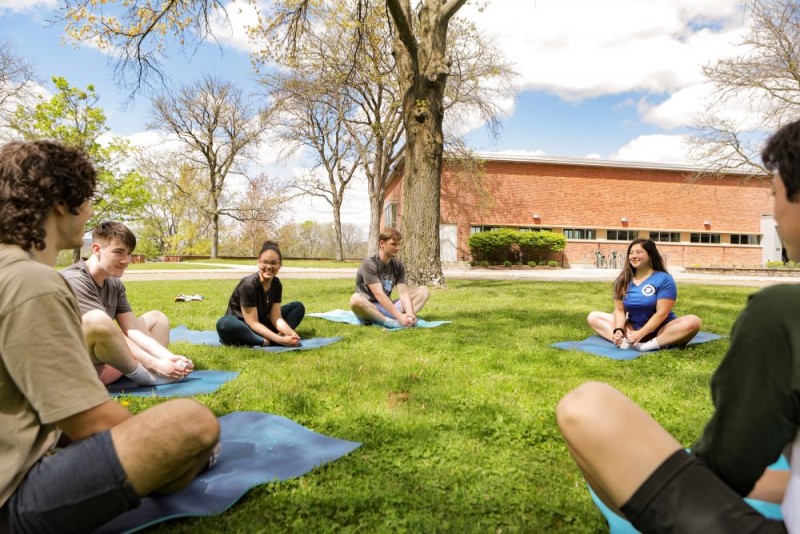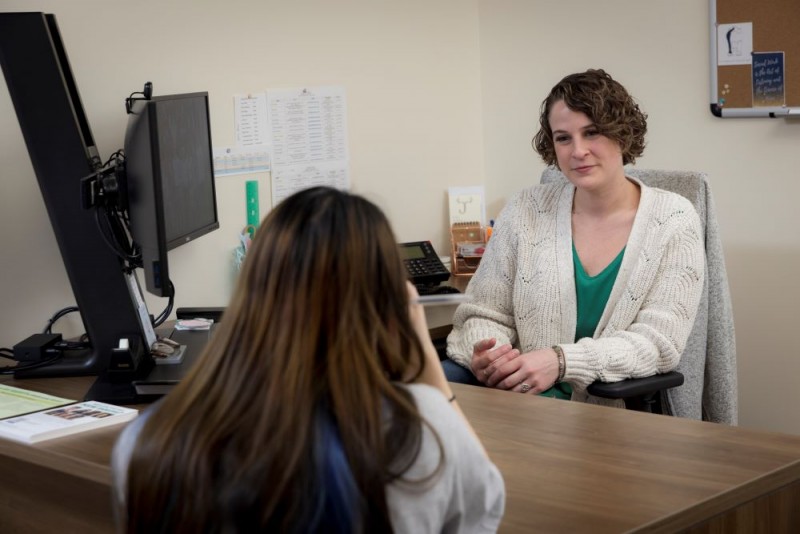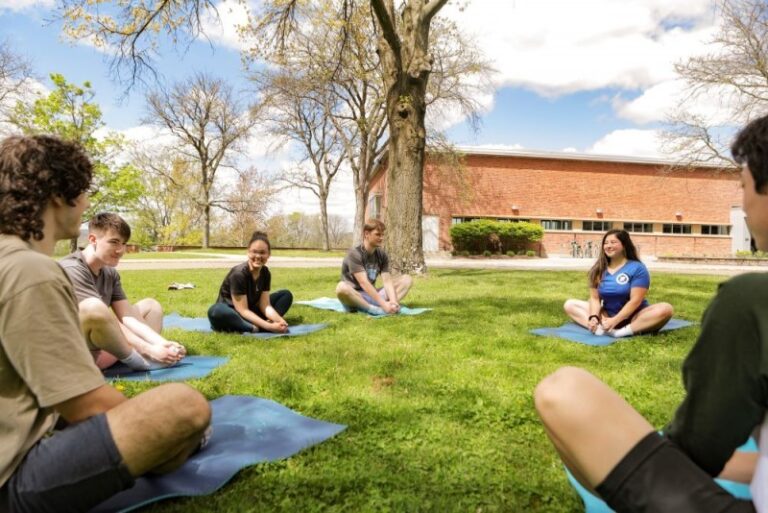The past month has been incredibly trying for students, faculty and staff at Binghamton University. There are many reasons for this, ranging from world events to the immediate tragedy striking the very heart of campus. As a senior at Binghamton, I experienced the immense and constant difficulty of grieving and dealing with health and relationship issues in a college environment far from home. However, I have also benefited from significant support from the University, the community, and my personal connections here at Binghamton. Suffering demands a response, and I have seen the campus respond with grief, compassion, and action. In order to contribute to this answer, I found it helpful to start from a place of habitual and emotional strength. This is not easy and can sometimes seem trivial and selfish. However, these activities, applied in a healthy way, contribute significantly to increasing our physical and emotional capacities for compassion. Here are several mental health awareness tips that I recommend in solidarity with the CARE Team and the Counseling Center here in Binghamton.
Take time to write a journal

More often than not, the buildup of stressors or unresolved emotions in our minds can cause us to feel overwhelmed or hopeless. If we never take the time to validate these feelings and investigate their causes, they become difficult to manage and improve. Journaling helps us process our life experiences and thoughts by writing to a real or imagined audience. Since I’m a verbal processor, I often make a voice journal and record myself, which I listen to later. This method helps me ground myself in the present moment and reveals patterns in my responses to life’s challenges. Consult the advice center tips on journaling. There are also a number of apps it can remind you to journal and stay aware of your mood and behavior.
Learn to Help Better by Setting Boundaries

Sharing each other’s burdens and investing in the people we love is one of the most wonderful things in human life. However, there is a certain extent to which you must evaluate your ability to help others. Ask a friend or counselor to help you set boundaries for your benefit and that of the people you support. You should never be the sole bearer of your burdens, let alone anyone else’s. Graciously help them connect to school resources and other trusted people who care about them. Health Promotion and Prevention Services have tips for helping a friend struggling with suicidal thoughts, anxiety or depression.
Join a community

“Atomization” is a term used to describe the isolation of individuals believed to be self-sufficient in modern society. While being an individual is important, there are a multitude of benefits within the community. It is helpful to determine your interests, values, and identity in order to seek out a community that will accept, support, and challenge you. My involvement in the many clubs and organizations in Binghamton as well as my local church have been instrumental in my support and personal development.
Manage stress by practicing mindfulness

Stress often has a negative connotation, but can be helpful in achieving our goals and keeping us safe. The goal of stress management is to reduce negative stress (distress) and to control the emotions that enrich but also frustrate our lived experience. I find that taking time to intentionally talk to members of my support system (friends, family, mentors, counselor) helps the most with stress, but I need reliable, daily methods to take care of myself . The Advice Center recommends this resource from the Center for Clinical Interventions, which details methods of distress tolerance and mindfulness practice. Some of these include muscle relaxation, grounding exercises, and positive self-talk.
Find a creative outlet

As someone who loves art and writing, creativity is a refuge and playground for many of my emotions and experiences. It’s important to recognize that sometimes your creative outlet is just for you. Free yourself from pressure and create for the pleasure of creating. If you’re not a creative person, you may find that taking up a new artistic habit (painting, poetry, knitting, etc.) could be beneficial even if you feel like you’re not very good at it. domain. Art-making and creativity instill a purpose, no matter how small, which builds confidence, discipline and perseverance.
Take care of your body with exercise, sleep and nutrition

I used to roll my eyes at mental health advice that emphasized any of these things. However, after implementing these disciplines more consistently in my life, I recognized how important they are. It is essential to remember that you live inside a body, and not just a body, but a body closely related to the emotions and intellect that you consider part of your conscious experience . If you find the time to intentionally move your body, practice good sleep hygiene, and pay attention to what and how you eat, you will find that these things contribute holistically to your personal improvement. I won’t include practical advice for these categories because I realize that many people have complex relationships with exercise, sleep, and diet that require nuanced solutions. However, you can consult the Binghamton Counseling Center and the recommended Clinical Intervention Center Individual self-help pages for specific health and identity issues.
Evaluate yourself or ask someone to help you

It’s easy to write a list of mental health tips. It can be difficult to find ways to motivate and implement these practices, especially if you are unaware of the nature of your mental health problem. The Binghamton Counseling Center has anonymous self-screening tests to help you identify the type and severity of any mental health symptoms you may be experiencing. Note that these self-screenings are not a substitute for a diagnosis from a mental health professional. After your self-assessment, ask trusted people who spend time with you for their observations about your mood and behavior. Also, do not hesitate to contact the CARE team, Student Disability Services (SSD) or on-campus guidance services. Personally, the support of SSD has been essential during some of the most difficult times of my university experience. Since these services offer resources and options that you might not otherwise know about or consider, it can never hurt to reach out to them. Check 33 Health and Wellness Resources at Binghamton University for more details on what the University offers.
Stephen Folkerts is an intern in the Office of Media and Public Relations and has a degree in English. He hopes to work in ministry and publishing. In his free time, he enjoys playing jazz, poetry, and basketball.
Do you have any questions, comments or concerns about the blog? Send us an email at social@binghamton.edu.
